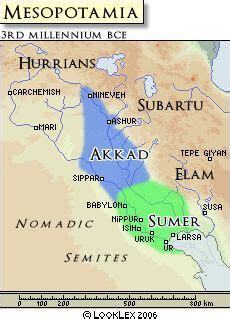The Ancient Sumerians

The Ancient Sumerians
Study of Antiquity and the Middle Ages (2021)
Film Review
Sumer (5500-1800 BC) was a collection of independent city-states in southern Mesopotamia. It co-existed with Akkad in northern Mesopotamia.
Among important Sumerian achievements:
The invention of time, dividing day and night into 12-hour segments, each hour into 60 minutes and each minute into 60 seconds.First schools.Earliest tales of the Great Flood.First epic poem.First government bureaucracy.First use of irrigation.First schools.World’s first named author – Enheduanna (a woman).First juvenile delinquents.First bicameral assemblyFirst use of legal precedentFirst tax cutsFirst pharmacopeiaFirst farmer’s almanac.First love songFirst library catalogueFirst sick societyFirst sex symbolismFirst organized labor victoryFirst lullabyFirst aquariumOur earliest information about Sumer, eventually absorbed following invasion and occupation by the Elamites (2600 BC) comes from the ancient scribes who wrote Genesis.No one knows where the Sumerians came from, but there were firmly established by 2900 BC It was unknown in the modern era, prior to its discovery by British archeologists looking for Biblical sites like Babylon, Niniva and Shinar.
Archeologists divide Sumerian history into six epochs
5000 – 4100 BC Ubaid (named after first Sumerian city): first blossoming of communities that ultimately became city-states)
4100 – 2900 BC Uruk (named after Sumerian city): first blossoming of “civilization”
2900 – 2334 BC Early Dynastic: saw rise of kings and bureaucracies and conflict between cities over land and water rights.
2334 -2218 BC – Akkadian: followed conquest by Sargon of Akkadia and absorption into Akadian Empire.
2218 – 2047 BC Gutian: The Gutian Dynasty came to power in both north and south Mesopotamia following their conquest of the Akkadian Empire.
2047 – 1750 BC Third Dynasty of Ur: founded by the Sumerian Ur-Nammu, who ruled all of Mesopotamia
In 2700 BC Enmebaragesi: after Kish led a coalition of of Sumerian city-states against the Elamites, the first war in recorded history. Sacking the Elamite cities, the Sumerians prevailed.
Uruk, founded 4000-3400 BC, was the first city in the world. By 3100 BC, it had 40,000 residents.
The Sumerians worshiped Enki, the Sumerian god of water, knowledge, crafts, and creation and Inana, goddess of love, war, and fertility, among other local gods. According to a legend dating to 2300 BC, the Sumerian gods got fed up with humanity because they were too noisy and troublesome and ordered a great flood. Enki saved humanity by instructing a man to build an ark and fill it with breeding pairs of each known animal. It was at this point, the gods introduced death and disease to keep humans from getting out of control again.
The same story would be retold in Gilgamesh, written during the Akkadian Epic of Gilgamesh (late 2nd millennium BC) and Genesis.
The Sumerian city-states were totally dependent on irrigation, requiring constant collective effort to maintain the irrigation canals. Most historians believe the organized Sumerian city-states arose from the need to manage irrigation.
The Sumerian King List, recorded around 2100 BC, provides a full list of Sumerian kings dating back to the king the Sumerian gods appointed in Sumer’s legendary first city Aradu, Sumer’s legendary first city.
The first cuneiform script also originated in Sumer, to record types and quantities of traded goods. By 2100 BC the Sumerian grammar was sufficiently advanced to produce the Epic of Gilgamesh (written in the Akkdian language using Sumerian script). The latter had a profound influence on the scribes who wrote the Bible, as well as inspiring the fables recorded by the Greek storyteller Aesop. The zygurat-dominated Sumerian temples influenced the Egyptian pyramids.
By 1750 BC, the Babylonia empire had begun to cultural dominate the Elamites who ruled Sumer, and male gods began to supersede female gods. In 1792-1750 BC, Hamurabi, the sixth king of the Babylon, elevated a single male god above all other gods. This, along with exhaustion of their farmland, led to a decline of women’s rights in Sumer’s city-states.
The Most Revolutionary Act
- Stuart Jeanne Bramhall's profile
- 11 followers



